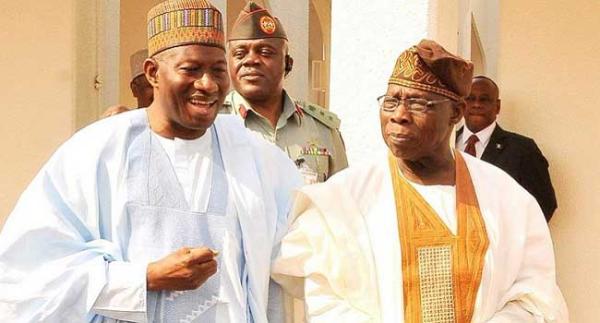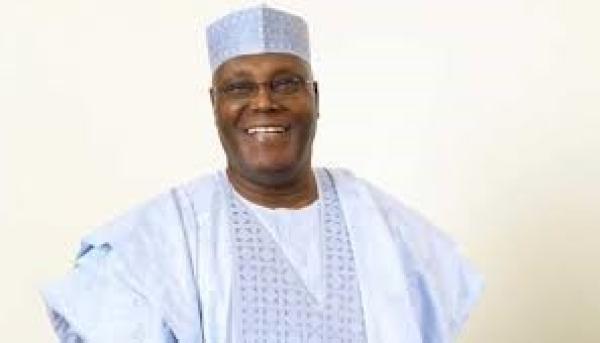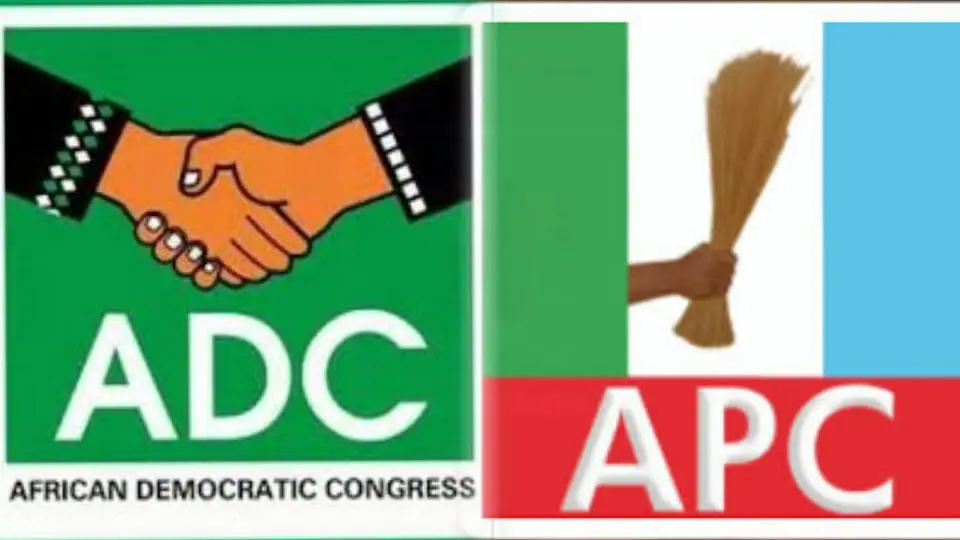
The administration of President Goodluck Jonathan will soon be bearing the description, ‘former,’ just like previous administrations in Nigeria. But whether ‘former’ or ‘incumbent’, every government is remembered for one achievement or the other. PAUL CHIAMA and ADAH ABAH write on what Nigeria’s living former leaders will be remembered for.
General Yakubu Gowon
General Yakubu “Jack” Dan-Yumma Gowon (retd), born October 19, 1934, was the head of state (head of the Federal Military Government) of Nigeria from 1966 to 1975. He assumed power following the military counter-coup d’état of 1966 and was overthrown in another coup in 1975.
A very prominent achievement of the nine-year military administration of General Yakubu Gowon from July 1966 to 1975 was winning the Nigerian Civil War, otherwise known as the Biafran War, which lasted for 30 months beginning from 1967 to early 1970 to keep the nation one. In view of this, former Minister of Information, Labaran Maku, wrote to eulogise him on his 77th birthday anniversary with these words:
“General Yakubu Gowon is the best military leader that ruled Nigeria because of his rare quality of humility, a typical soldier on whose shoulder providence bestowed the enormous responsibility of leading our nation through its most turbulent years in history. As a young military officer, at the age of 36, Gowon was able to provide the needed leadership for Nigeria throughout the period of the civil war and the country emerged stronger from the ashes of the war. Through the slogan “No Victor, No Vanquished”, Nigeria came out of the civil war as a more cohesive and united entity.
“Gowon’s vision of rebuilding the country through the three R’s – Rehabilitation, Reconciliation and Reconstruction – recorded a level of success. He launched the first National Development Plan for the nation.”
The immediate post-war era witnessed the “oil boom” and with the nation’s new oil wealth, Gowon embarked on several capital projects, especially in the then Federal Capital Territory (FCT), Lagos. Another decision made by Gowon at the height of the oil boom was his indigenization policy of 1972, which declared many sectors of the Nigerian economy off-limits to all foreign investment, while ruling out anything more than minority participation by foreigners in several other areas. This policy provided windfall gains to several well-connected Nigerians, but proved highly detrimental to non-oil investment in the Nigerian economy.
Also, the administration of Gowon created the first 12 states in the country, to give each section of Nigeria a sense of belonging. The administration also created the National Youth Service Corps (NYSC). This scheme was created to foster national unity, integration, mutual understanding and co-existence among Nigerian youths as a way of averting acrimony along ethnic leanings, a factor that led to the civil war.
Gen Olusegun Obasanjo
The military administration of Gen Olusegun Obasanjo (retd) from 1976 to 1979 will continuously be remembered for two major achievements:
Operation Feed the Nation (OFN)
The Obasanjo administration launched Operation Feed the Nation as a way of countering rapid increase in food importation. The Federal Military Government under Obasanjo launched the OFN programme as an agricultural programme in 1976 as a result of the inability of the nation’s agricultural sector to produce enough food to satisfy the country’s food needs. However, the scheme failed to achieve the expected objective after two years of operation. The failure of OFN was attributed to its poor organisational and operational structure.
October 1, 1979 Handover
Another remarkable achievement recorded by the Obasanjo administration is the handover of power to an elected president, the first time in Nigeria. In 1979, Obasanjo presided over a democratic election which was won by Alhaji Shehu Shagari of the National Party of Nigeria (NPN). Obasanjo, therefore, won accolades from Nigerians and the international community for being the first military head of state to voluntarily give the baton of leadership to an elected president in Nigeria.
This feat was made more remarkable because it happened in an era when coup and counter-coups were a recurring decimal in Nigeria’s political leadership and in Africa in general, wishing military leaders wishing to prolong their stay in office.
Shehu Shagari
Usman Aliyu Shagari, Turakin Sakkwato (born February 25, 1925) served as the president of Nigeria’s Second Republic (1979–1983) after the handover of power by General Olusegun Obasanjo’s military government. Upon assuming office, one popular programme launched by Shagari’s administration, among others, was the food sufficiency programme tagged “Green Revolution”.
The Green Revolution programme was a major agriculture policy of the Shehu Shagari administration and the Fourth National Development Plan. It was introduced in April 1980 and was intended as a programme to ensure self-sufficiency in food production and to introduce modern technology into the Nigerian agricultural sector largely through the introduction of modern inputs such as high yielding varieties of seeds, fertilizers and tractors. The programme encompassed a wide range of projects supportive of the nation’s agricultural development. This included 11 river basin development authorities, the ministry of Water Resources, National Food Production Programme and the Agro Service centres. Improving rice and fish production was a major focus of the programme which succeeded Operation Feed the Nation.
Shagari made Housing, Industries, Transportation and Agriculture the major goals of his administration, particularly in the early days during the oil boom. Despite some successes, these programmes were heavily plagued by corruption. Shagari completed the Delta Steel Complex in 1982 and spent hundreds of millions of dollars on the Ajaokuta Steel complex and the steel rolling mills.
General Muhammadu Buhari
On December 31, 1983, the military overthrew the Second Republic, amidst jubilation by a seemingly fed-up Nigerian people, and Major General Muhammadu Buhari became the military leader of the new government and, by implication, the leader of the Supreme Military Council (SMC), the new ruling body. He was closely assisted by his Chief of Staff, Supreme Headquarters, Brigadier (later Major-General) Tunde Idiagbon.
If there was anything that made the short-lived General Muhammadu Buhari’s military administration (December31, 1983-1985) popular among Nigerians, it was the “War Against Indiscipline” programme. Launched on March 20, 1984, the policy tried to address the perceived lack of public morality and civic responsibility of the Nigerian society. Unruly Nigerians were ordered to form neat queues at bus stops under the watchful eyes of whip-wielding soldiers. Civil servants who failed to show up on time at work were humiliated and forced to do “frog jumps.”
Another dimension to the administration’s fight against indiscipline and corruption was in economic reform. The term “Buharinomics” was used to refer to General Buhari’s economic programme marshalled out to salvage the nation in 1984. He summarized the objective of his economic policy (as articulated in the 1984 budget) as follows: “To arrest the decline in the economy, to put the economy on a proper course of recovery and solvency, to chart a future course for economic stability and prosperity.”
General Ibrahim Babangida
Under the administration of General Ibrahim Babangida (retd), the introduction of Structural Adjustment Programme (SAP) was one of the policies that will linger in the minds of Nigerians for a long time. SAP was instituted as an economic recovery policy which was intended to drastically restructure the country’s economy and put it on a sound footing.
However, under SAP, unemployment was high, prices of food items increased while various fees were imposed by the government for health and educational services just as widespread suffering resulted among the Nigerian masses.
The government was resolved to implement the policy in the hope that it was the right approach to Nigeria’s economic and social crises. Also, remarkably notable were such benefits of SAP – longer inflation and more balanced budget.
Some of the basic features of SAP were the deregulation of the agricultural sector through abolition of marketing boards and removal of price control mechanisms, the privatisation of public enterprises and devaluation of the Naira. The devaluation of the nation’s currency under SAP was informed by the purported need to help in healthy growth of the export sector. The government also sought, under SAP, to relax some restraints on foreign investments as promulgated by the administrations of Gowon and Obasanjo.
SAP, alongside Babangida government, would be remembered because between 1986 and 1988, following the implementation of its blueprint according to International Monetary Fund (IMF) template, the Nigerian economy made a positive leap with the export sector performing well.
Option A4 Voting System
Under Babangida, Nigeria’s electoral history had a new story in the introduction of what was known as Option A4. The then chairman of the defunct Federal Electoral Commission (FEDECO), as it was called then, Professor Humphrey Nwosu, appointed by Babangida in 1989, introduced the Option A4 voting system and Open Ballot System.
The system was adopted to eliminate and avoid some past electoral pitfalls, ranging from rigging, illegal thumb printing of ballot papers, illegal stuffing of ballot boxes, violent electoral crisis, to manipulations. The system was operated based on physical presence of the voters who were counted openly on queues as they filed for a candidate of their choice. It was to the credit of the Option A4 and Open Ballot System that the June 12, 1993 election was adjudged then as the freest and fairest election in the history of Nigeria’s democracy.
Establishment of Primary Healthcare Centres
In 1987, the Babangida administration will also be remembered for launching a Primary Healthcare programme. The programme was designed to extend immunization to all parts of the country. It was also intended to address the issue of inadequate healthcare facilities and services in rural areas and to improve distribution of medical facilities among Nigerian masses.
States’ Creation
Another feat this administration will be remembered for is the creation of states. In September 1987, Babangida created two states: Akwa Ibom State, from Cross River State, and Katsina State from Kaduna State. In August, 1991, Babangida created additional nine states, bringing the number of states in Nigeria to 30.
6-3-3-4 System
The Babangida administration also introduced the 6-3-3-4 system of education, a system that is synonymous with spending six years for primary education, three years for junior secondary education, another three years for senior secondary education and four years for university education. The system is still being operated in the country today.
General Abdulsalami Abubakar
General Abdulsalami Abubakar led a very short-lived military administration from June 9, 1998 to May 29, 1999.
He came to power following the controversial death, on June 8, 1998, of the then head of state, General Sani Abacha. A month after the death of Abacha, Chief MKO Abiola, who was believed to have won the June 12, 1993 election, died in detention on July 7, 1998.
However, the 11-month period of Abubakar’s reign would be remembered for his commitment to hand over power to an elected civilian government.
The death of Abacha and Abiola, both in controversial circumstances, created some tension in the polity. Rather than hinging on the prevalent tension to elongate his tenure, Abubakar announced a quick transition plan and ensured its execution. Therefore, following the successful completion of the 1999 elections, he handed over power to Obasanjo on May 29, 1999 and thus returned the country to democratic rule after an uninterrupted 20 years of military rule. Interestingly, the same Abubakar led the military parade in 1979 as a young lieutenant colonel when Obasanjo handed over to Shagari in 1979. His government will always be remembered for this feat of voluntarily returning power to civi rule.
Chief Olusegun Obasanjo (second coming)
Olusegun Obasanjo had the rare opportunity of ruling the country twice – as military head of state and as a civilian president. In the second coming of Obasanjo, which lasted from 1999 to 2007, he was able to stabilize the polity by ensuring that the country continued in democratic practice. He also got the military to concentrate on professional military responsibilities by making politics less attractive to them.
Obasanjo also embarked on power sector reform which, though, could not bring the nation out of the lingering crises in the sector. In the area of fighting corruption, Obasanjo took a laudable step by establishing two anti-graft agencies – the Independent Corrupt Practices Commission (ICPC) and Economic and Financial Crimes Commission (EFCC). While the ICPC was inaugurated on September 29, 2000, EFCC was created in 2003. The two agencies were burdened with the responsibility of fighting corruption and financial crimes respectively. However, corruption has not abated in the nation’s public circles as public office holders are always indicted of corrupt practices.
Similarly, the government of Chief Obasanjo achieved foreign debt cancellation. Under the Nigeria-Paris Club deal, Obasanjo’s government was able to secure debt relief from the club. This brought about a waiver of 60 per cent of Nigeria’s total debt volume to the club while it had to pay the hanging 40 per cent in two phases. In total, Nigerian paid $12.4 billion to the club and was forgiven $18 billion debt.
The Obasanjo administration also introduced the Global System of Mobile (GSM) telecommunication revolution being enjoyed today in the country. The government created the enabling ground for the take-off of GSM telecommunication services in the country. Notably, 26 private companies had been issued licences for operation in the industry by the Abacha regime but nothing happened despite the licences given out. Obasanjo, therefore, revoked the licences and issued fresh ones which did the trick. To say the least, the telecom revolution has transformed telephony in Nigeria a great deal.
Goodluck Jonathan
The outgoing Goodluck Jonathan administration will linger in the minds of Nigerians for many reasons. The Almajiri children in northern Nigeria may be the first set of persons to remember the administration for establishing Almajiri Model Schools to provide for the education needs of the street boys, otherwise called Almajiris. The government promised to establish 400 of such schools in 19 states in the north. In keeping faith with the promise, the federal government under Jonathan had built no fewer than 125 Almajiri schools in 13 states of northern Nigeria.
Jonathan will also be admired for conceding defeat in the 2015 general elections when he lost to General Muhammadu Buhari of the All Progressives Congress (APC). Apart from saving the country untold crisis and bloodletting that could have resulted from doing otherwise, Jonathan also won accolades from across the world.
Also, the Freedom of Information (FOI) bill became law in Jonathan’s administration. This public accountability legislation had suffered untold delays and rejection by previous administrations, but it got the green light under Jonathan’s administration in 2011. It is, therefore, a credit to the administration that the FOI Act (2011) has been signed into law to give Nigerian people and the press more access to public information.
Similarly, women and their advocates for empowerment may not be in a haste to forget the role of the outgoing administration of Jonathan in creating an enabling ground for women empowerment. For instance, the administration brought more women into government than other administrations had done and gave 35 per cent affirmative action to women in appointive and elective positions. This, womenfolk and their advocates for empowerment, will not hurriedly forget.






















